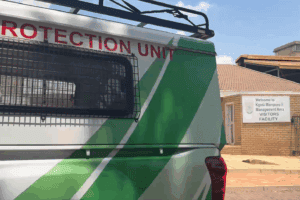The cost of tertiary education has been increasing steadily over the past few years, and there is no sign of this trend slowing down.

In South Africa, the cost of tertiary education has been a hot topic of debate for many years. There have been numerous protests by students, who argue that the prices are too high and are preventing them from getting a higher education. This is placing a significant financial burden on students and their families.
In an article published by the South African Journal of Higher Education, data were collected from The University of Cape Town’s (UCT) handbooks and calendars where trends in tuition fees were analyzed for the period 1923 to 2019.

Source: https://www.researchgate.net/figure/Tuition-Fees-1923-to-2020-constant-2019-prices_fig1_355847699}
In the graph above, we can see that a Bcom degree in 1970 cost around R20 000 whereas in 2019, a Bcom degree cost around R80 000. That’s an increase of 400% in tuition fees over the last 50 years compared to the previous 50 years, where prices remained fairly consistent. Not only has the price increased, but the rate at which it increases has accelerated significantly since 2000.
This is a worrying trend for many students and their families, as it indicates that tertiary education is becoming increasingly unaffordable for many students in South Africa.
With the current rate of inflation, tertiary education is likely to become even more expensive in the next few years.
There are several reasons for the gradual increase in the cost of tertiary education at South African universities. One of the main reasons is the fact that our country has a very low rate of economic growth. This means that there is less money available to invest in education.
However, this doesn’t mean that tertiary education is not worth pursuing. These findings underscore the importance of finding financial solutions for higher education.

So, what does this mean for students who are considering furthering their education in 2022 and beyond? Well, the cost of a three-year degree is likely to be upward of R300 000. This is a lot of money, but it is important to remember that this cost can be spread out over several years while studying.
While the cost of tertiary education is high, so is the return on investment. A tertiary qualification will open up many doors for students which can lead to higher earnings and greater employment opportunities. It can also provide access to social and professional networks that can help further students’ careers and help achieve their goals.
It is an investment that will pay off in the long run.
Despite these challenges – and while studying may seem very expensive – there are a number of ways in which students can finance their studies in South Africa.
The most common way is through loans from financial institutions such as banks, but students can also apply for bursaries and scholarships from a variety of different organisations.

One of these organisations is Fundi – a company that aims to make tertiary education more affordable and accessible for all South Africans.
Fundi wants to assist students in reaching their dreams by offering student financing that covers a range of costs from tuition and device loans, to textbooks, study material, accommodation, and more.
Students can even find student accommodation through Fundi’s online platform, buy airtime or data and get eBooks. All your education financial needs are in one place!
So, while the cost of tertiary education is rising, it is still possible to get the education you need to succeed.
Boilerplate:
Company: FundiConnect
Webpage: www.fundiconnect.co.za
Email: [email protected]
Facebook: @fundiconnectSA (Link: https://www.facebook.com/fundiconnectSA/)
LinkedIn: FundiConnectSA (Link: https://www.linkedin.com/company/fundiconnectsa/)






